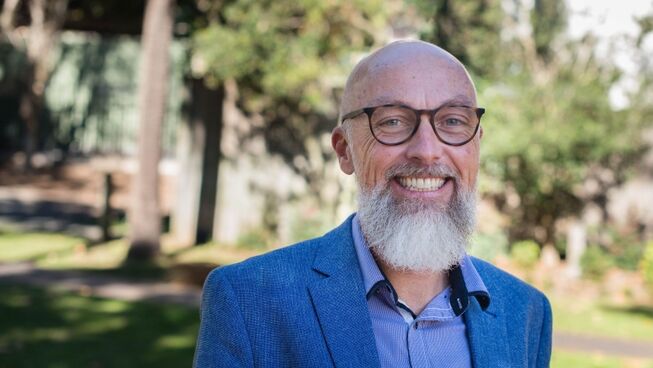
Bushfires raging and burning down houses, and a lockdown just starting up due to a COVID outbreak.
Sounds like Australia at the start of 2020, right?
But here we are at the start of 2021, a year in which we wanted to put last year behind us and get on with something, anything, but 2020. And here in Perth, my home city, we are in lockdown, while close to 100 houses have been lost to a raging bushfire that has blanketed the city with smoke and ash.
The more things change … etc,etc.
Remember back early in COVID when the Australian Prime Minister Scott Morrison said that our lives may not get back to normal until September? Well September was five months ago and state by state here in Australia we are playing tag team with lockdowns, uncertain and insecure how things are going to roll out.
And we’ve got it easy compared to other nations around the world. When are things going to get better?
I’m interested in that question myself. I want things to get better. I don’t want to have to wear a mask while running (the positive thing being that it mimics the oxygen depletion of high altitude running so it will make for great PBs later in the year), and I don’t want to readjust my work schedules again around Zoom and social distancing. We’d all hoped for a better 2021.
But it’s worth asking why we have such hopes. Apart from the fact that there is an arbitrary nature to how we imagine change occurring with the reset of a calendar to January 1, the bigger question is why we have it ingrained in us that things should get better. Do we think that we are owed better? Or perhaps we think that the way that history is moving, then progress should lead us to hope for a brighter future.
If you do look towards the future and hope for a better one, one in which we progress towards whatever it is that has grasped your imagination, justice, a healthier world, a more loving community etc, then congratulations, you have imbibed a most Christian way of thinking. You may not be a Christian reading this, but you need to know that the idea that history is moving towards a goal, a plan, a better future, is embedded in the Christian understanding of how the world works.
For let’s face it, the idea of history moving in a direction is not universal. It never was. Huge swathes of the world’s population over time and across space have seen history as cyclical. What goes around comes around.
The seasons are there not to show that we are moving in a direction, but that we are not. We are going around in a circle. We are coming back to where we began, time and time again. That’s the whole point of religions that promote karma and reincarnation. Most pagan religions held that view of how things worked.
But the Bible, with a God who was moving in a certain direction does not present history that way. And Christians, for whom resurrection, not reincarnation, is the ultimate reality, definitely see history moving in a clear direction. And it’s a direction of hope and joy because Jesus is the Lord of history. His resurrection guarantees our own resurrection and the end of death and misery and bushfires and COVID.
Oh, and the beginning of full justice. When Martin Luther King said that the arc of history bends towards justice, he was not simply stating a wish he had. He took that from his thoroughly biblical understanding of how God was working in the world. And if God had shown justice to Jesus in raising him to new creation life, then God would do that to us too - and indeed do it to the world.
I often hear people who have no declared faith in Christ echo that statement of King’s and I wonder how they come to that conclusion. Can you deduce from what has gone before us that the the arc of history bends towards justice?
Can you look at most of history - and indeed much of the present across huge swathes of the globe - and come to that conclusion? I defy anyone to do so, without having wittingly or unwittingly imbibed the refreshing reality of the Christian message.
Of course people who don’t believe Christianity can work for justice, but it’s a bit of a push to have a confidence that history is heading in a justice direction without at least having some view of where history has come from and where it is heading towards. Without something - or Someone - sitting outside history, it’s a hard sell. It’s not a logical leap to make in the dark.
The message of the Bible is that contrary to the religions and gods of the day, the Israelites worshipped a God who created history, and who was moving it in a direction. But not only that, the message of the Bible is that that God entered history in the person of Jesus, and in doing so altered the course of history through his life, death and resurrection.
And while we now measure our calendars by Jesus - 2020, 2021 etc, the key takeaway of the Bible is that history can be divided into two epochs; life before the resurrection, and life after it. In a sense Jesus’ resurrection is the fulcrum of history, the tipping day of the see-saw of the ages, in which history - and indeed the future - is settled.
So what does it all mean? It means at least this, as we go through the stop-start stagger of COVID lockdowns: Even in this seemingly endless cycle of fires and plagues, there is a God who is taking history in a direction, and it’s a good one, full of joy and justice.
But it also means this: the arc of history doesn’t just bend towards justice, it bends towards Jesus. Whatever we want the future to be - 2021, 2022, and even beyond, the Christian message is that Jesus is the organiser, ruler and decider of history. He is not thwarted by events, his plans are not locked down by happenings, and his goal for the future does not have to be readjusted to take account of bushfires and plagues.
If you haven’t thought about what the Bible says about the future, then perhaps it’s worth having a read. I’m reading the book of Exodus at the moment, a classic example of the God of history moving justice forward in the midst of a hostile world. And if you want to read about plagues and fires, it’s a good place to start!
All jokes aside, it’s in Exodus that God is the one who stands above history. When God meets Moses at the burning bush he calls himself “I AM” rather than “I WAS”, or “I WILL BE”. I am not swayed by the contingencies of history. And then God goes about proving that by freeing Israel from slavery in Egypt and in the process showing how he controls plagues and fires. He is moving history along.
And it’s only in that truth, that He alone is above the fray, that we can hope for a future of joy, justice, and yes, Jesus, God's king of history


